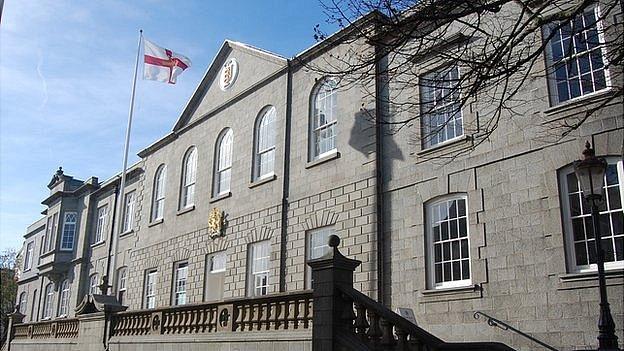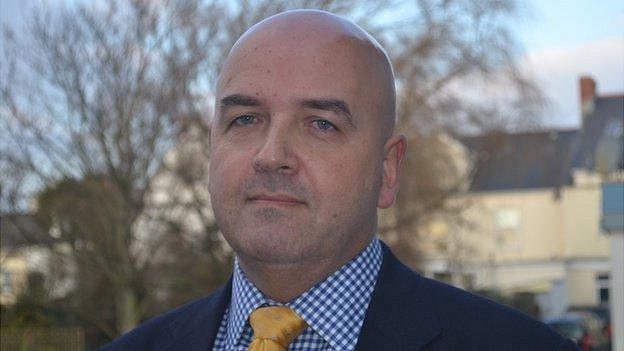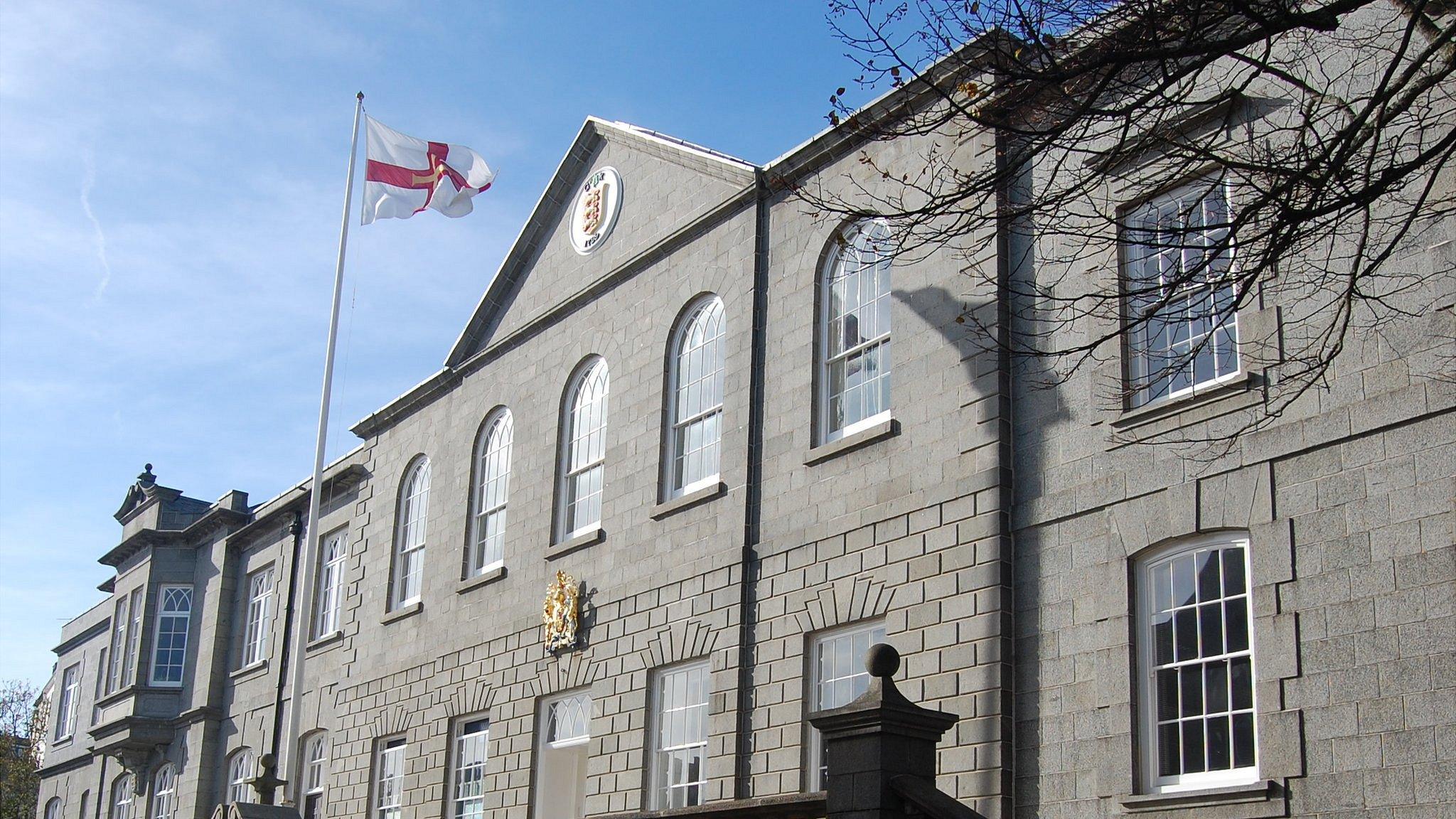Guernsey States 'could shrink to below 40 deputies'
- Published

Deputy Matt Fallaize said there was no point having more politicians than was needed
The number of politicians in the States of Guernsey could drop to 40 under plans to change the structure of government.
The States Review Committee's proposals would see the number of deputies, elected by the people of Guernsey and Herm, fall from 45 to 38.
Two representatives of the States of Alderney would still sit in the States.
The proposals, including creating a senior committee, are due to be voted on at a special States meeting in July.
Deputy Matt Falliaze, chairman of the review committee, said the aim was to improve coordination across the States, offer clear leadership and improve scrutiny.
He said the move from 10 departments to six committees was not about "ramming departments together", but bringing together "common functions in as few committees as we could".
Deputy Fallaize said: "There is no point having more States members than we need; we need 38 to make this system work efficiently and democratically."

Proposed structure
One senior committee: Policy and Resources
Six principal committees: Economic Development, Education, Sport & Culture, Employment, Housing & Social Security, Environment & Infrastructure, Health & Social Care and Home Affairs
Five board or authorities: Development & Planning Authority, Civil Contingencies Authority, Passenger Transport Licensing Authority, Overseas Aid & Development Commission and States' Trading Supervisory Board.
Scrutiny Management Committee
States Assembly and Constitution Committee


Deputy Jonathan Le Tocq said changes to the public sector would follow political change
Currently the island's government is made up of 10 departments, three committees and a Policy Council.
The system was last changed in 2004, but concerns have since been raised about the number of departments and differences in the amount of responsibilities each has, and about politicians being involved in decisions also scrutinising those decisions and the role of the chief minister and ministers.
The ministers do not have ministerial powers and their role is like that of a committee chair. The chief minister has no more power than any other member of the assembly.

Crown Dependencies comparison
Tynwald in the Isle of Man has 35 members, about one for about every 2,500 people
States of Jersey has 49 members, about one for every 2,000 people
States of Guernsey has 45 deputies, about one for every 1,400 islanders
The drop to 38 deputies would mean one representative for every 1,650 people

Chief Minister Jonathan Le Tocq said the plan was for changes at a political level to be followed by changes to the public sector.
He would not comment on whether this would mean fewer States employees, but said there could be changes in what roles staff carry out in a bid to "produce better policies and better decision making".
If approved, more detailed proposals would be discussed later this year and up to £530,000 of funding would be released.
The committee said the changes, scheduled to start from May after the next general election, were expected to save between £250,000 and £300,000 a year.
- Published2 June 2014

- Published30 November 2013

- Published27 October 2013

- Published13 June 2013
